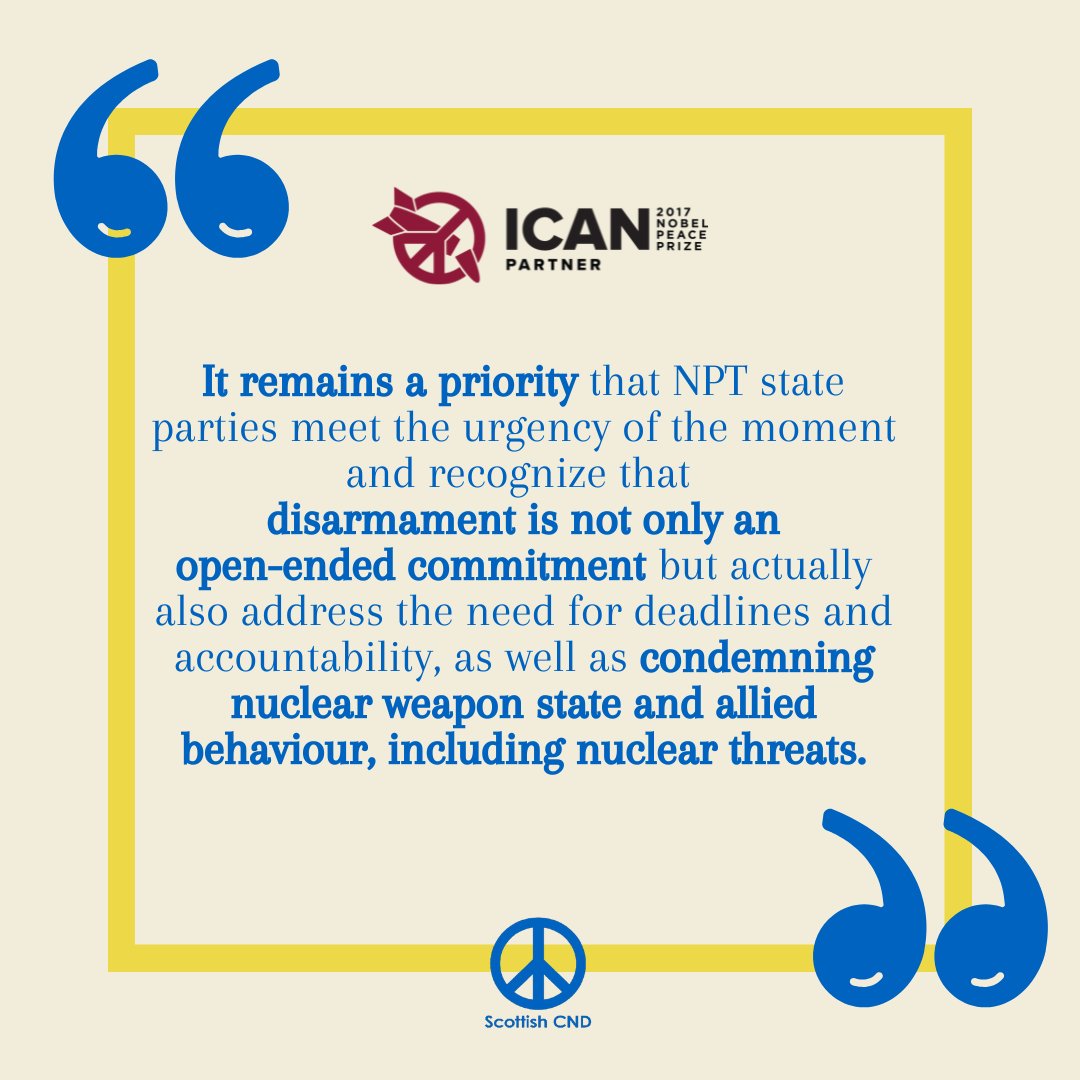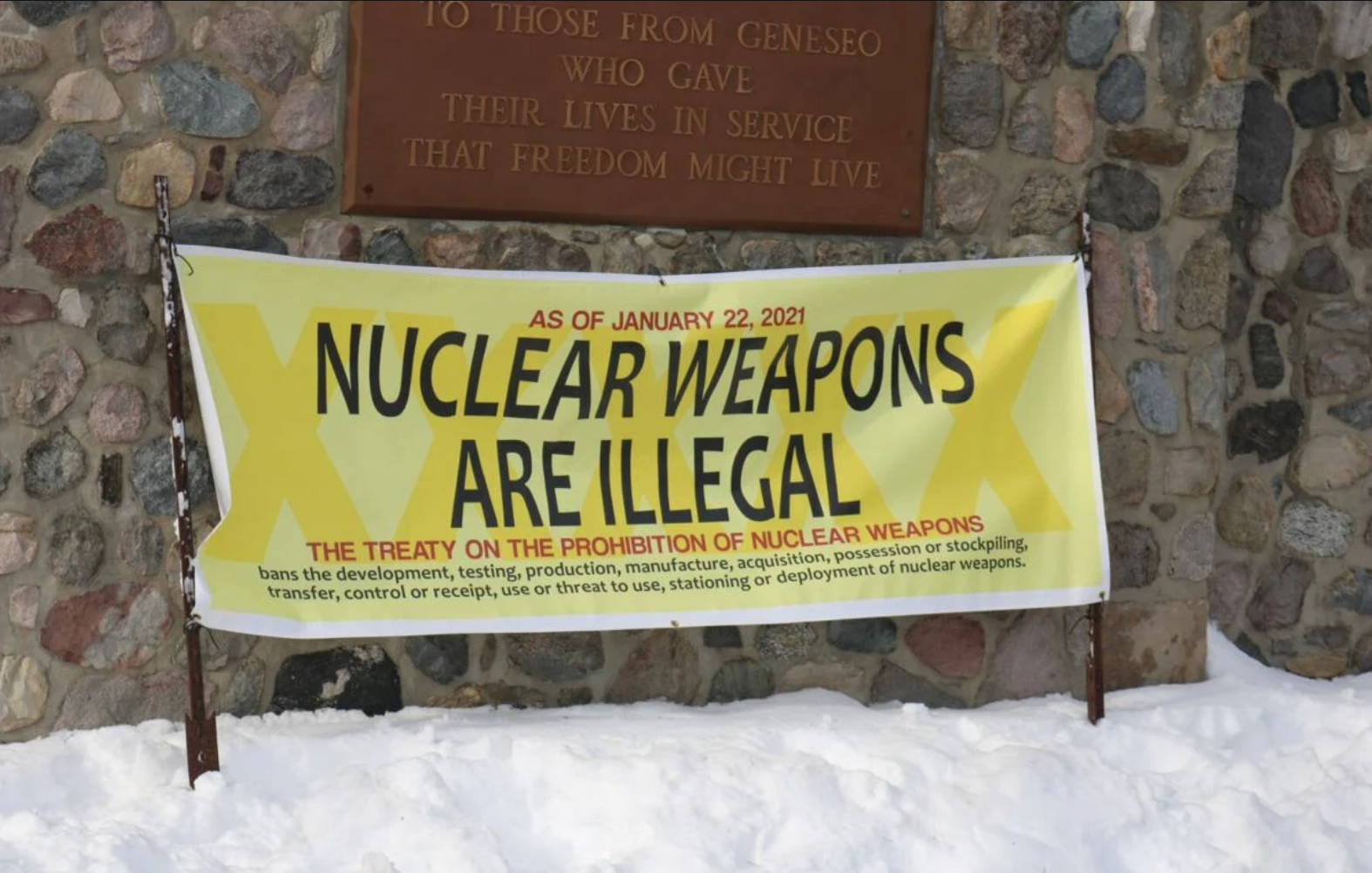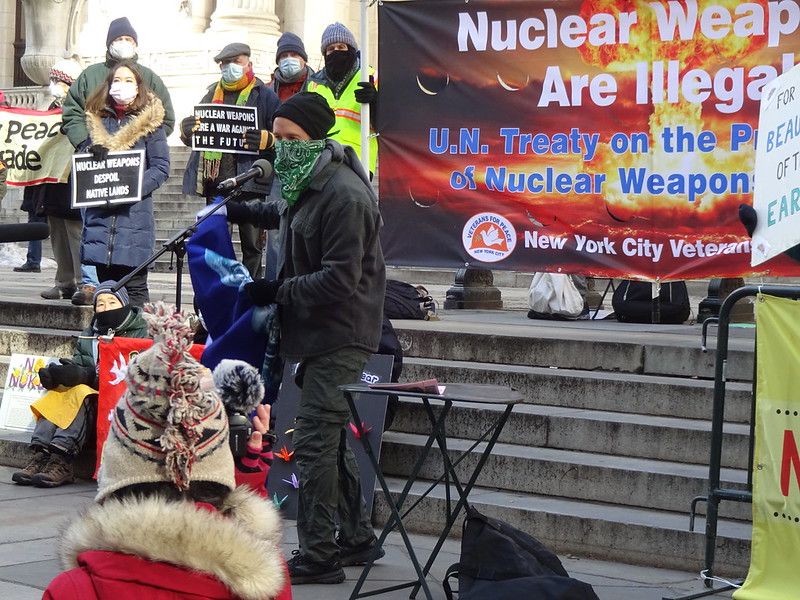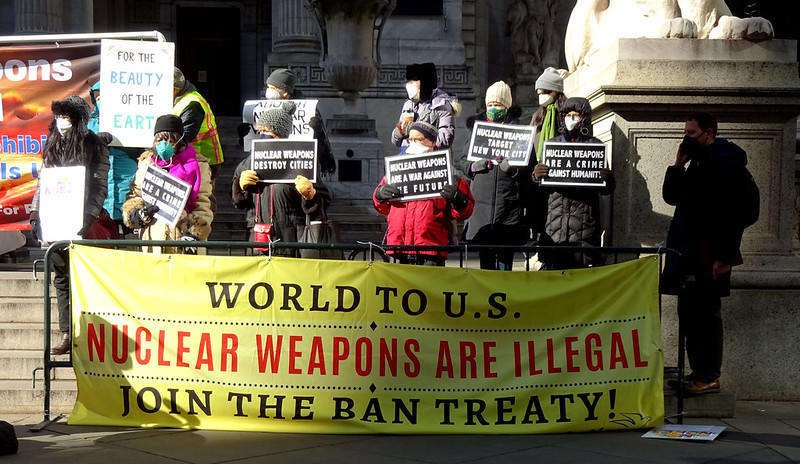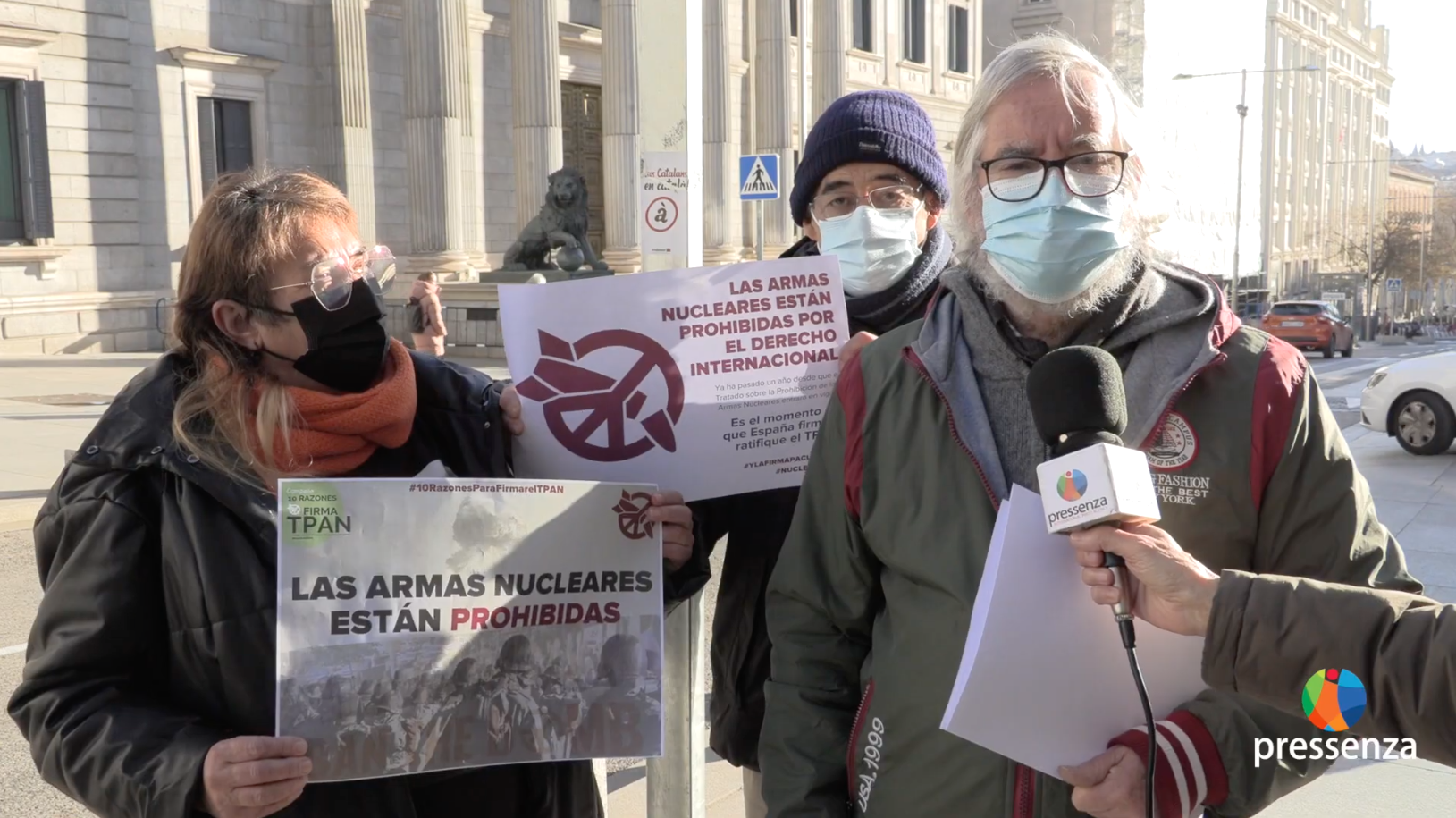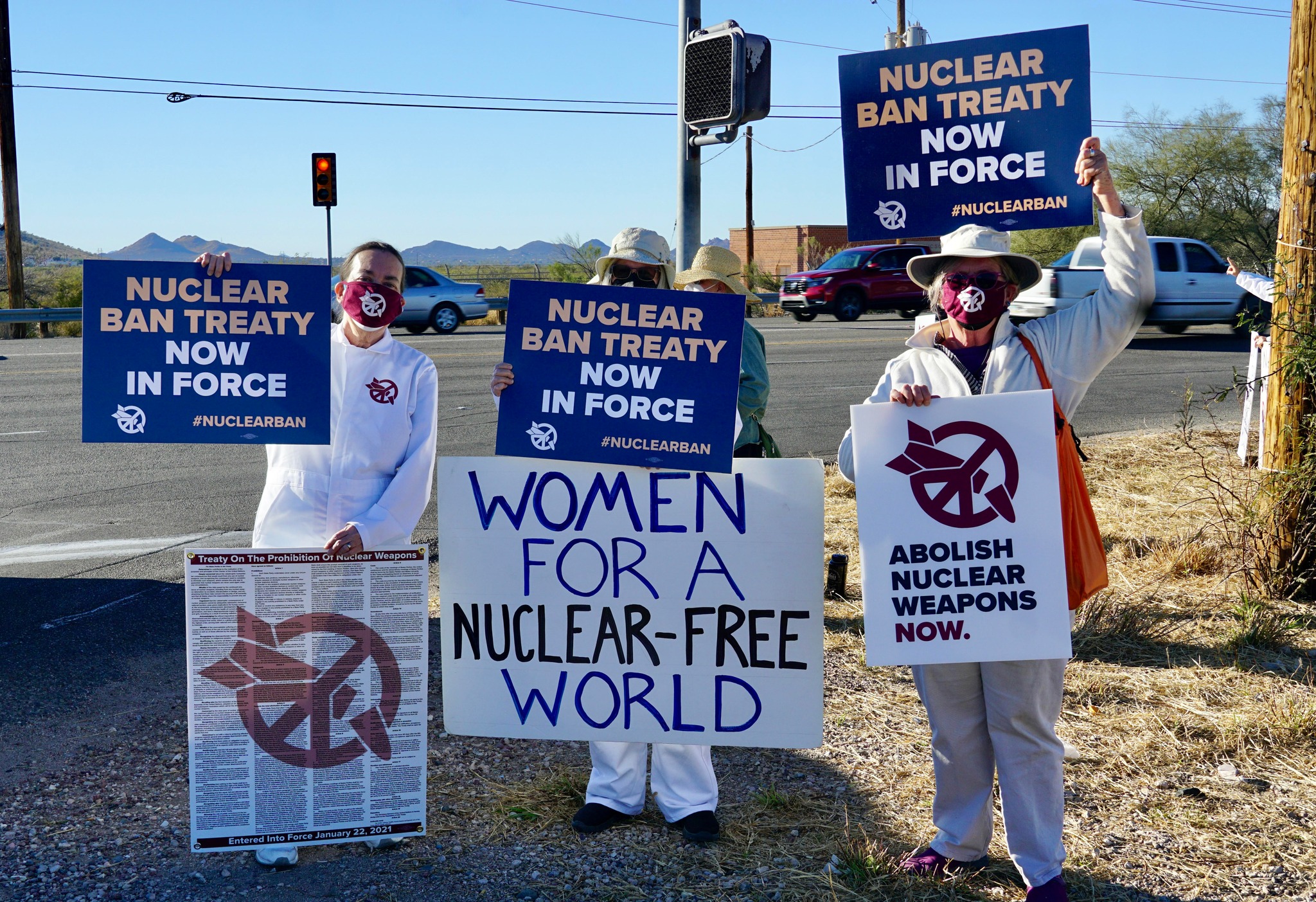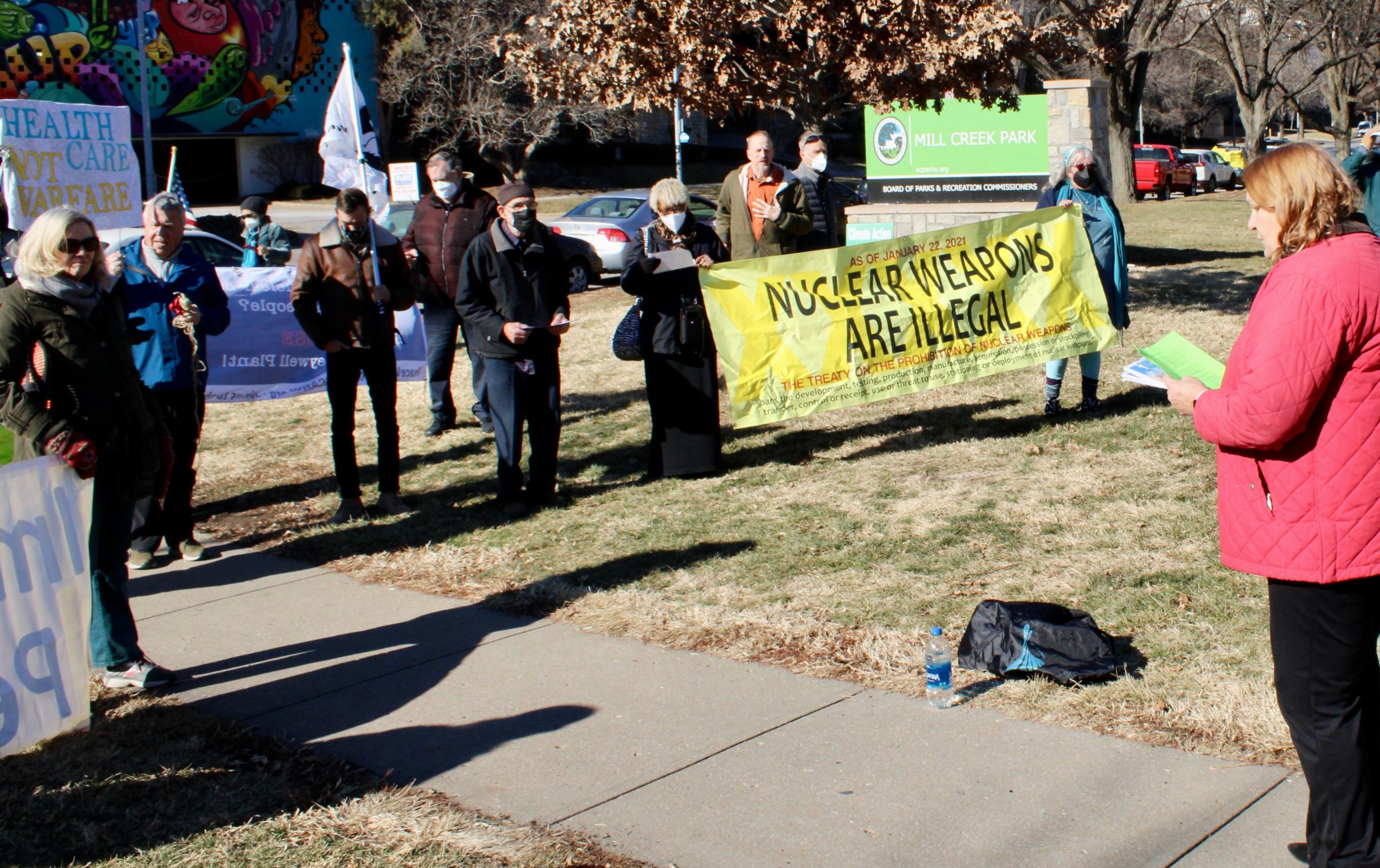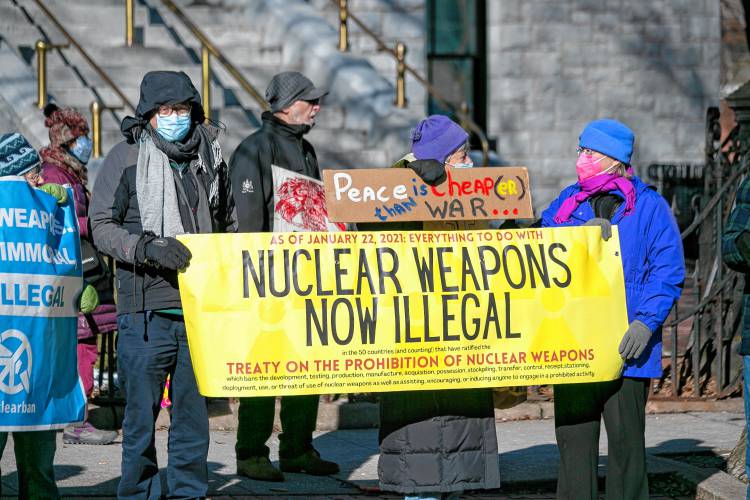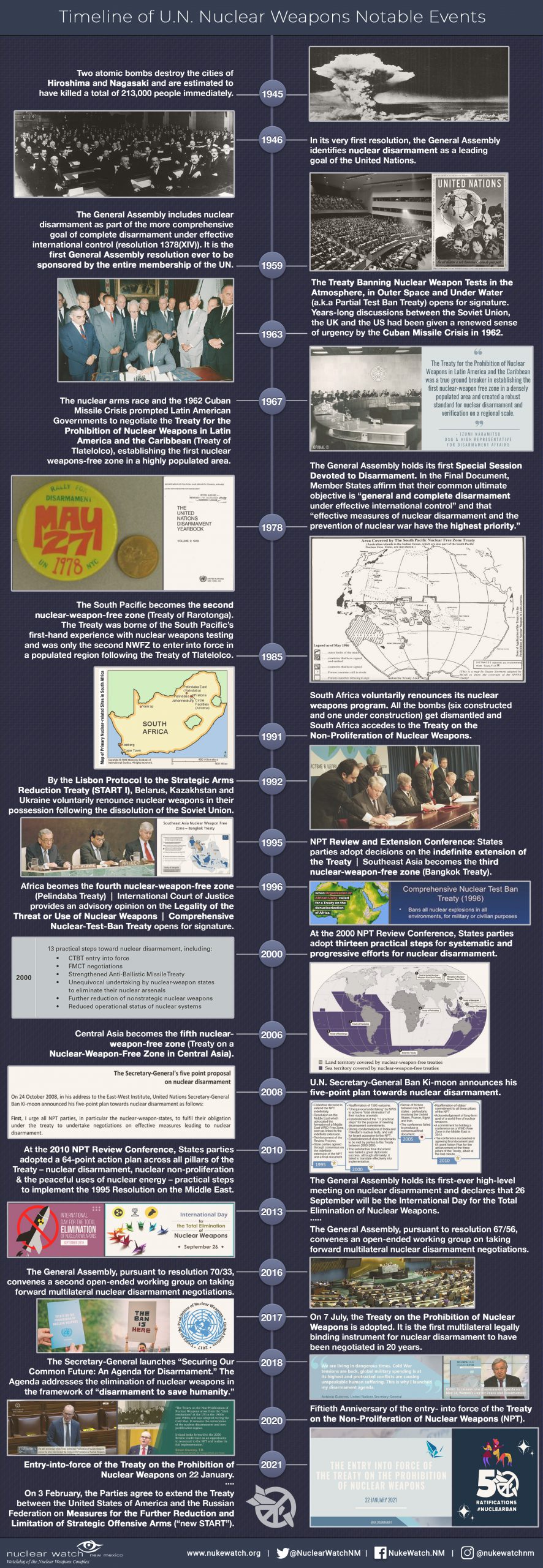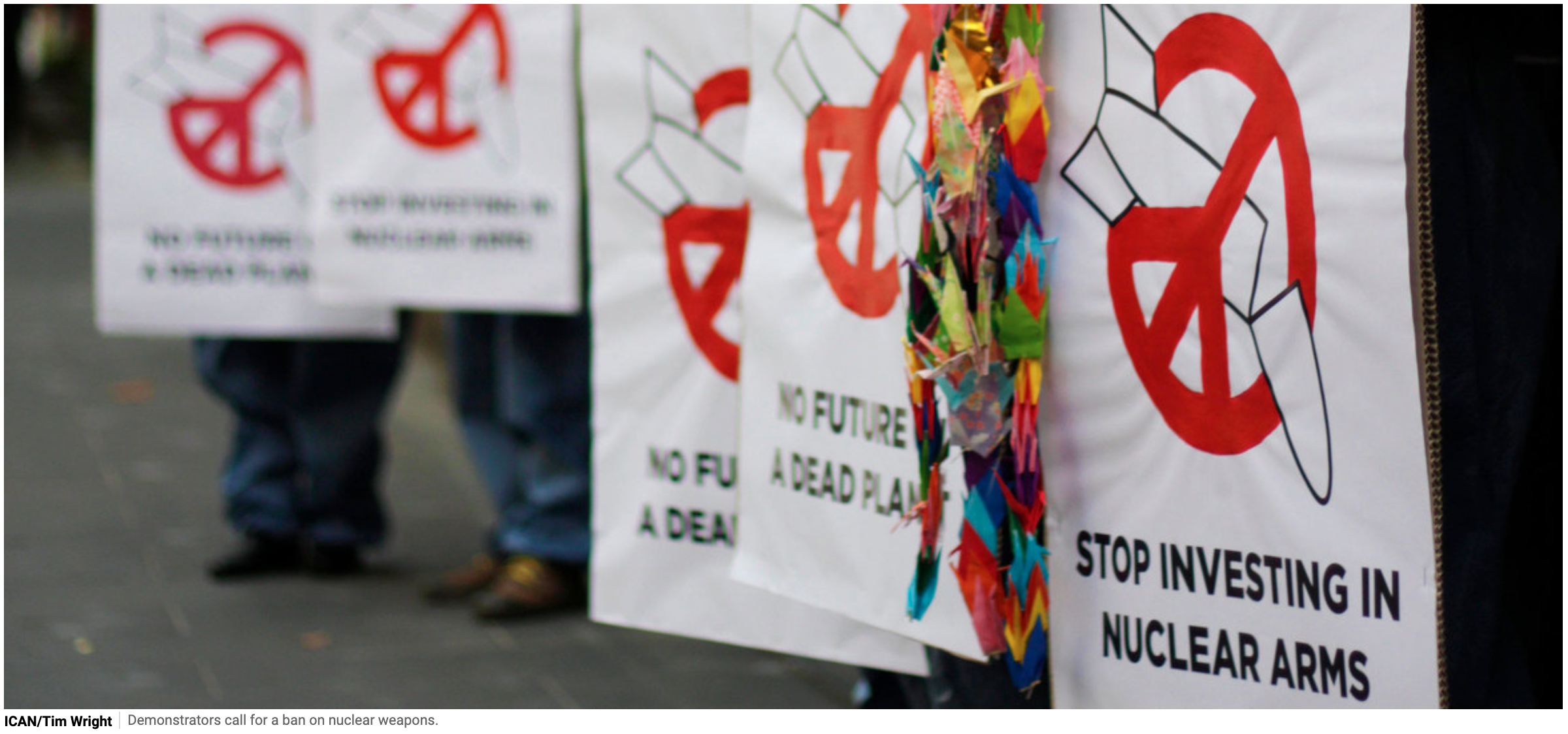Recent News
Nothing Found
It seems we can’t find what you’re looking for. Perhaps searching can help.
Abolishing Nuclear Weapons is a Moral Imperative
View Recording of the March 9th PDA CNM Community Gathering:
PDA CNM welcomed Archbishop John C. Wester, Archbishop of Santa Fe, and our own executive director of Nuclear Watch New Mexico, Jay Coghlan, to speak at their March 9, 2022 monthly gathering: “[Archbishop Wester's] courage in speaking out against the proliferation of nuclear weapons inspires us at PDACNM to follow his example and continue the fight against this peril, especially given the threat of a possible imminent war between two nuclear powers.
Jay Coghlan, executive director of Nuclear Watch New Mexico, has worked successfully against radioactive incineration at the Los Alamos National Lab, and in Clean Air Act, Freedom of Information Act and National Environmental Policy Act lawsuits against the Department of Energy. He prompted a 2006 independent study that concluded plutonium pits last at least a century, refuting the NNSA’s assertion that we “need” new-design nuclear weapons and expanded plutonium pit production.”
The Nuclear Ban Treaty
Overview
The U.N. Treaty
on the Prohibition of Nuclear Weapons
On 7 July 2017 – following a decade of advocacy by ICAN and its partners – an overwhelming majority of the world’s nations adopted a landmark global agreement to ban nuclear weapons, known officially as the Treaty on the Prohibition of Nuclear Weapons. It will enter into legal force once 50 nations have signed and ratified it.
Prior to the treaty’s adoption, nuclear weapons were the only weapons of mass destruction not subject to a comprehensive ban, despite their catastrophic, widespread and persistent humanitarian and environmental consequences. The new agreement fills a significant gap in international law.
It prohibits nations from developing, testing, producing, manufacturing, transferring, possessing, stockpiling, using or threatening to use nuclear weapons, or allowing nuclear weapons to be stationed on their territory. It also prohibits them from assisting, encouraging or inducing anyone to engage in any of these activities.
Why a ban?
A nation that possesses nuclear weapons may join the treaty, so long as it agrees to destroy them in accordance with a legally binding, time-bound plan. Similarly, a nation that hosts another nation’s nuclear weapons on its territory may join, so long as it agrees to remove them by a specified deadline.Nations are obliged to provide assistance to all victims of the use and testing of nuclear weapons and to take measures for the remediation of contaminated environments. The preamble acknowledges the harm suffered as a result of nuclear weapons, including the disproportionate impact on women and girls, and on indigenous peoples around the world.
The treaty was negotiated at the United Nations headquarters in New York in March, June and July 2017, with the participation of more than 135 nations, as well as members of civil society. It opened for signature on 20 September 2017. It is permanent in nature and will be legally binding on those nations that join it.
Nuclear weapons are the most inhumane and indiscriminate weapons ever created. That is why it is time to end them, before they end us.
Nuclear weapons are the most inhumane and indiscriminate weapons ever created. They have catastrophic humanitarian and environmental consequences that span decades and cross generations; they breed fear and mistrust among nations, as some governments can threaten to wipe out entire cities in a heartbeat; the high cost of their production, maintenance and modernisation diverts public funds from health care, education, disaster relief and other vital services. Banning these immoral, inhumane weapons under international law was a critical step along the path to ending them.
With the adoption of the UN Treaty on the Prohibition of Nuclear Weapons (TPNW) on July 7th, 2017, the world's majority took a critical step towards making that nuclear-weapon-free future a reality.
Nuclear Weapons Ban Treaty News & Updates
NPT Review Conference fails to address current security environment
“In a year when a nuclear-armed state invaded a non-nuclear armed state, a meeting of nearly all countries in the world failed to condemn Russia’s threats to use nuclear weapons in the context of its invasion, and failed to take any steps that would advance nuclear disarmament.”
After four weeks of meetings, the 10th Nuclear Non-Proliferation Treaty Review Conference has failed. Despite the final draft outcome document being significantly weakened throughout the negotiations, Russia refused to accept the final version and the conference ended without an agreement.
ICAN (The International Campaign to Abolish Nuclear Weapons) | August 27, 2022 icanw.org
Photos from Celebrations of the 1st Anniversary of the Nuclear Ban Treaty – January 22, 2022
Seeking a world without nuclear weapons
Jan. 22 is the one-year anniversary of the U.N. Treaty on the Abolition of Nuclear Weapons entering into force as international law. Today, 59 countries have ratified the Treaty on the Abolition of Nuclear Weapons, with several more countries on the verge of doing the same. The importance of this cannot be overstated. With more and more countries outlawing everything to do with nuclear weapons, it becomes increasingly harder for the nine countries possessing these weapons to defend their continued existence.
recorder.com | BY SUSAN LANTZ January 22, 2022
For instance, Germany, Norway, Sweden, Belgium, Netherlands, Italy are all likely to sign onto the Treaty on the Abolition of Nuclear Weapons eventually, with strong support already in their populations and parliaments. The United States currently has nuclear weapons in Belgium, Germany and Italy. After these countries ratify the treaty, the United States will be required to remove its weapons.
International Day for the Total Elimination of Nuclear Weapons at Ghedi Base in Italy
View photos below of the initiative near the Italian base of Ghedi, which hosts US nuclear warheads, on the occasion of the International Day for the Total Elimination of Nuclear Weapons.
[smartslider3 slider=”9″]
ICAN IGTV
The international campaign to abolish nuclear weapons on instagram (@nuclearban) tackling some of the more technical legal questions of the treaty: what does entry into force mean, what happens now? Joined with experts, they dive into international law and the TPNW (without getting too technical!) through instagram chats to help break it all down.
View this post on InstagramTim Wright in conversation with Associate Professor Treasa Dunworth of the University of Auckland
A post shared by ICAN (@nuclearban) on
View this post on InstagramA post shared by ICAN (@nuclearban) on
View this post on InstagramA post shared by ICAN (@nuclearban) on
Nothing Found
It seems we can’t find what you’re looking for. Perhaps searching can help.
Quotes
Nothing Found
It seems we can’t find what you’re looking for. Perhaps searching can help.
All Nuclear Arms Reduction and Non-Proliferation Updates & Recent News
To Avoid Armageddon, Don’t Modernize Missiles—Eliminate Them
Land-based nuclear weapons are world-ending accident waiting to happen, and completely superfluous to a reliable deterrent.
“Getting trapped in an argument about the cheapest way to keep ICBMs operational in their silos is ultimately no-win. The history of nuclear weapons in this country tells us that people will spare no expense if they believe that spending the money will really make them and their loved ones safer—we must show them that ICBMs actually do the opposite.“
By Daniel Ellsberg and Norman Solomon thenation.com October 22, 2021
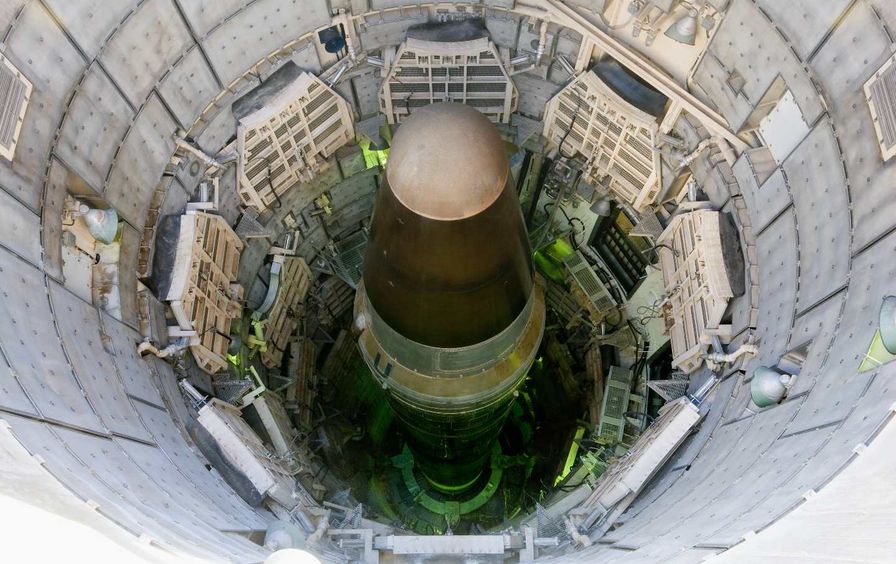
The single best option for reducing the risk of nuclear war is hidden in plain sight. News outlets don’t mention it. Pundits ignore it. Even progressive and peace-oriented members of Congress tiptoe around it. And yet, for many years, experts have been calling for this act of sanity that could save humanity: Shutting down all of the nation’s intercontinental ballistic missiles.
Four hundred ICBMs dot the rural landscapes of Colorado, Montana, Nebraska, North Dakota, and Wyoming. Loaded in silos, these missiles are uniquely—and dangerously—on hair-trigger alert. Unlike the nuclear weapons on submarines or bombers, the land-based missiles are vulnerable to attack and could present the commander in chief with a sudden use-them-or-lose-them choice. “If our sensors indicate that enemy missiles are en route to the United States, the president would have to consider launching ICBMs before the enemy missiles could destroy them. Once they are launched, they cannot be recalled,” former Defense Secretary William Perry warns. “The president would have less than 30 minutes to make that terrible decision.”
The danger that a false alarm on either side—of the sort that has occurred repeatedly on both sides—would lead to a preemptive attack derives almost entirely from the existence on both sides of land-based missile forces, each vulnerable to attack by the other; each, therefore, is kept on a high state of alert, ready to launch within minutes of warning. The easiest and fastest way for the US to reduce that risk—and, indeed, the overall danger of nuclear war—is to dismantle entirely its Minuteman III missile force. Gen.
James E. Cartwright, a former vice chair of the Joint Chiefs of Staff, who had been commander of the Strategic Command, teamed up with former Minuteman launch officer Bruce G. Blair to write in a 2016 op-ed piece: “By scrapping the vulnerable land-based missile force, any need for launching on warning disappears.”
Continue reading
Nuclear talks with US to resume ‘soon,’ Iranian foreign minister says
The US left the JCPOA in 2018, citing continued malign behavior by Iran in the region, and implementing a “maximum pressure” sanctions regime, but Biden seeks a return to the policy.
“Until Iran returns to the negotiating table, the other parties must also make new decisions and show their will and intention for the success of the talks and fulfilling their commitments,” he added.
Biden administration reveals number of nuclear weapons in US stockpile
“The Biden administration’s decision to declassify updated information on the number of nuclear warheads in the U.S. nuclear weapons arsenal is a welcome step that reverses an unwise decision by the Trump administration to classify this information,” the Arms Control Association said in a statement Wednesday.
“It also puts pressure on other nuclear armed states that maintain excessive secrecy about their arsenals.”
By Chandelis Duster and Nicole Gaouette, CNN, benningtonbanner.com October 7, 2021

(CNN) In a reversal from the Trump administration, the State Department revealed the number of nuclear weapons in the US stockpile for the first time in four years on Tuesday.
“Increasing the transparency of states’ nuclear stockpiles is important to nonproliferation and disarmament efforts, including commitments under the Nuclear Non-Proliferation Treaty, and efforts to address all types of nuclear weapons, including deployed and non-deployed, and strategic and non-strategic,” the State Department said.
Nuclear-Weapon-Free States Demand Immediate End to Deterrence Policies, Start of Dismantling Atomic Arsenals, as First Committee Continues General Debate
Calling for swift remedies to mend a fractured non-proliferation landscape, nuclear-weapon-free States demanded an immediate end to deterrence policies and the start of dismantling atomic arsenals, as the First Committee (Disarmament and International Security) moved into the third day of its general debate.
UNITED NATIONS MEETINGS COVERAGE GENERAL ASSEMBLY FIRST COMMITTEE SEVENTY-SIXTH SESSION, 4TH MEETING (PM)
As thousands of atomic bombs located around the world pose grave risks to humanity, delegates implored nuclear-weapon States to steer the planet onto a path of peace. Some suggested such ways to do so, with delegates agreeing that dismantling nuclear arsenals must start now, in line with the Treaty on the Non-Proliferation of Nuclear Weapons and under safeguards established by the International Atomic Energy Agency (IAEA). Many urged all nations with atomic arsenals to sign, ratify and fully implement existing conventions, including the Treaty on the Prohibition of Nuclear Weapons, which entered into force in January, and some decried the quarter of a century delay in entering into force the Comprehensive Nuclear-Test-Ban Treaty. To rectify this, many called for nuclear-weapon States to sign and ratify it so that atomic bomb testing can become part of the past.
International Day for the Total Elimination of Nuclear Weapons 2021
Today, Sunday, September 26, 2021, marks the United Nations International Day for the Total Elimination of Nuclear Weapons. The United Nations has been working toward achieving global nuclear disarmament since the organization’s inception; it was the subject of the General Assembly’s first resolution in 1946, with a mandate to make specific proposals for the elimination of atomic weapons and all other major weapons adaptable to mass destruction. The International Day for the Total Elimination of Nuclear Weapons has been observed annually since 2014, serving as a tool to enhance public awareness and education about the threat posed to humanity by nuclear weapons and the necessity for their total elimination. In 2013, the year the International Day for the Total Elimination of Nuclear Weapons was introduced, the President of the General Assembly noted that a “renewed international focus on the catastrophic consequences of nuclear weapons has led to a reinvigoration of international nuclear disarmament efforts.”
U.S. still prepared to engage with North Korea after missile test
“North Korea’s cruise missiles usually generate less interest than ballistic missiles because they are not explicitly banned under United Nations Security Council resolutions. However, analysts said calling it “strategic” could mean it was a nuclear-capable system.”
Reuters reuters.com September 13, 2021
ABOARD AIR FORCE ONE, Sept 13 (Reuters) – The United States remains prepared to engage with North Korea, a White House spokeswoman said on Monday, despite Pyongyang’s announcement that it had tested a new long-range cruise missile over the weekend.
“Our position has not changed when it comes to North Korea, we remain prepared to engage,” principal deputy press secretary Karine Jean-Pierre told reporters.
North Korea’s state media announced on Monday what it said were successful tests of a new long-range cruise missile that analysts said could be the country’s first such weapon with a nuclear capability. read more
U.S. officials, speaking on the condition of anonymity, said initial indications were that North Korea had carried out such a test.
Why China’s attack on Nato ‘double standards’ suggests it will continue to build up nuclear arsenal
“The alliance’s head Jens Stoltenberg accused Beijing of increasing its firepower ‘without constraint’ and urged it to sign up to international arms controls – But Beijing hit back by criticising Nato’s nuclear sharing arrangements and said the US and Russia should lead the way by disarming”
Liu Zhen scmp.com September 12, 2021
China is expected to continue building up its arsenal of nuclear weapons despite Nato’s appeal for it to sign up to international arms controls. Last week Nato Secretary-General Jens Stoltenberg criticised China’s efforts to develop its nuclear capacity – by building more warheads, delivery systems and silos – “without any limitation or constraint”.
He told Nato’s annual arms control conference in Brussels that this was making the world “more unpredictable, more competitive and more dangerous”.
Lawmakers set for battle over next-gen nuclear missile
“For the W87-1, whose plutonium cores, or pits, are to be produced in part by the Savannah River Plutonium Processing Facility in South Carolina, at stake are jobs and billions of federal dollars to upgrade buildings or construct new factories. It’s all intertwined with shaky plans launched by the Trump administration to have Savannah River and Los Alamos National Laboratory in New Mexico produce a combined 80 pits per year by 2030.”
Joe Gould defensenews.com September 9, 2021

WASHINGTON ― Nuclear modernization opponents and defenders are gearing up to fight again over the next-generation intercontinental ballistic missile and other efforts.
Rep. John Garamendi, D-Calif., and a skeptic of nuclear spending on the House Armed Services Committee, confirmed he plans to offer nuclear-themed amendments when the annual defense bill receives House floor consideration later this month. One aims to pause the Air Force’s nascent Ground Based Strategic Deterrent in favor of maintaining the missile it would replace, the Minuteman III; another would zero out funds for the GBSD’s warhead, the W87-1.
“The bottom line is that we could pause the entire GBSD program and push forward into the future a $100 billion expense,” Garamendi, who chairs the House Armed Services readiness subcommittee, told Defense News.
With the Biden administration’s Nuclear Posture Review due early next year, Garamendi said the amendments are part of his “strategy to raise the issues, to gather the data, test the arguments against the opposition … and create an occasional success.”
General Assembly President calls for halt to nuclear tests
The President of the UN General Assembly, Volkan Bozkir, on Wednesday called for an end to nuclear tests, as ambassadors gathered to commemorate the International Day against Nuclear Tests, observed annually on 29 August.
UN News news.un.org September 8, 2021
Despite recent developments in advancing nuclear disarmament, more remains to be done, said Mr. Bozkir, urging countries which have yet to sign or ratify the Comprehensive Nuclear-Test-Ban Treaty (CTBT) to do so without delay.
Today we mark the International Day against Nuclear Tests, an opportunity to remember the victims of nuclear testing, honor the survivors and examine the legacy impacts of nuclear weapons, including that of nuclear waste. My full remarks here: pic.twitter.com/1onIGt3TJ5
— UN GA President (@UN_PGA) September 8, 2021
“More than 2,000 nuclear tests have been conducted since the advent of nuclear weapons. While the rate of testing has declined, they have not stopped,” he said.
“These tests have long lasting health and environmental consequences. They devastate the communities they impact. They displace families from their homelands.”
Progress on disarmament
Underlining the General Assembly’s commitment to nuclear disarmament, Mr. Bozkir welcomed progress achieved over the past year amid the challenges of the COVID-19 pandemic.
For the NPT to work, plutonium has to go
Dealing with uranium enrichment is complicated because nuclear power plants use enriched uranium fuel, but that should not hold us back from eliminating the danger we can eliminate—plutonium.
By Victor Gilinsky, Henry Sokolski thebulletin.org | March 15, 2021
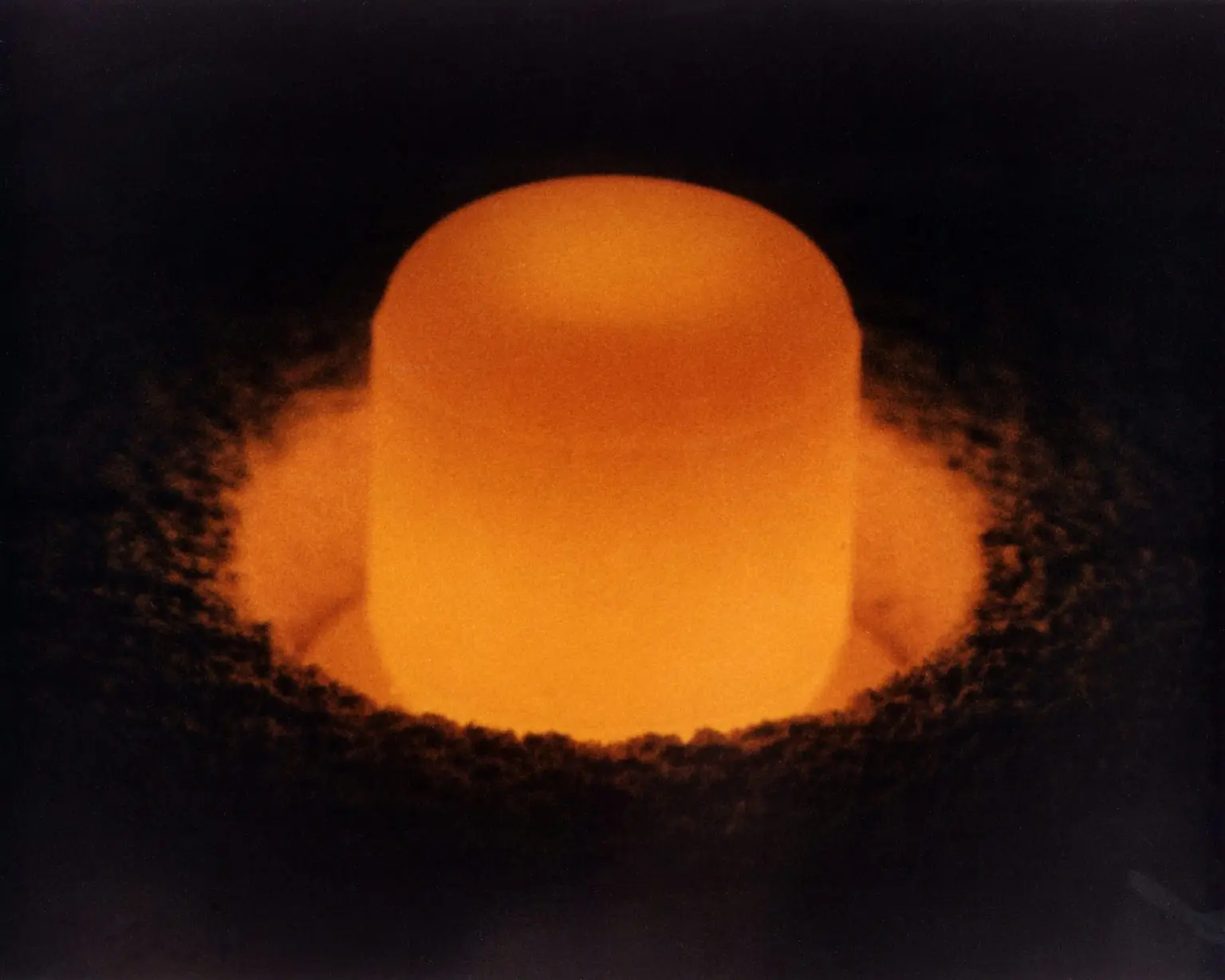
The Nuclear Nonproliferation Treaty (NPT), whose tenth review conference is coming up in August, is in trouble, and not only because of the crescendo of complaints about the failure of the nuclear-armed states to implement nuclear disarmament. The treaty is threatened with irrelevancy because its controls have not kept up with the times. It was drafted over 50 years ago, when it was widely believed that nuclear energy represented the future and would soon take over the generation of electricity. Not surprisingly, countries put few treaty restrictions on access to technology or materials other than to impose international inspection, and even that was circumscribed. We now have a more realistic view of the dangers of access to fuels that are also nuclear explosives (plutonium and highly enriched uranium) and also of the limited economic utility of these fuels for powering reactors. If we want an effective NPT, we have to eliminate these dangerous materials from civilian nuclear power programs.
2021 & Earlier
Nothing Found
It seems we can’t find what you’re looking for. Perhaps searching can help.
Resources
Nothing Found
It seems we can’t find what you’re looking for. Perhaps searching can help.
Nothing Found
It seems we can’t find what you’re looking for. Perhaps searching can help.
Quotes
Nothing Found
It seems we can’t find what you’re looking for. Perhaps searching can help.



